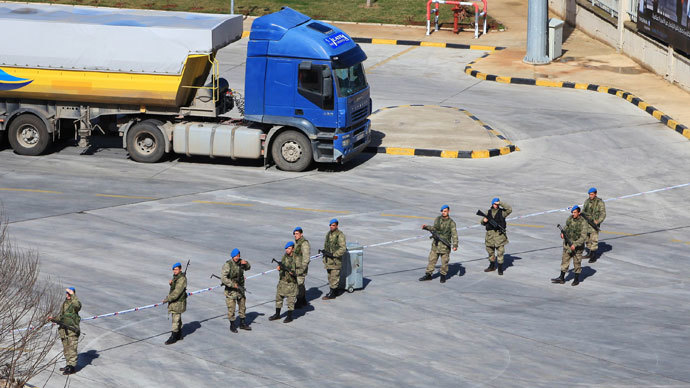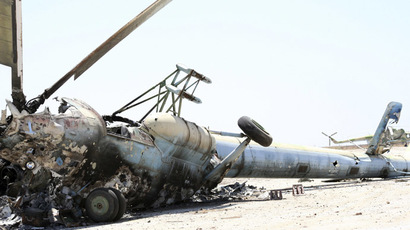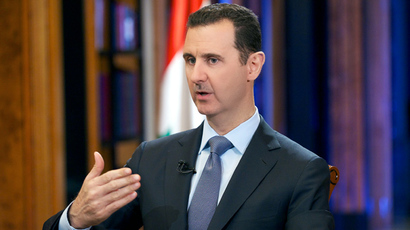Turkish patrol seizes over a ton of chemicals from smugglers at Syria border

Turkish border guards seized three vehicles loaded with over 1,000 kg of chemicals as they tried to illegally cross the border into Syria. One of the smugglers was arrested, while others managed to escape.
The Turkish General Staff reported that the chemicals were seized
after a convoy of three vehicles refused to stop and attempted to
illegally cross the border near the southeastern Turkish town of
Reyhanli on Saturday.
Paramilitary police were ordered to shoot out the tires of the
vehicles to stop them. As the tires caught on fire, the three
drivers jumped out and fled in the direction of Syria. One of
them was arrested.
The vehicles contained 20 bags of sulphur, weighing about 50 kg
each, and eight sealed barrels. Their contents were not
immediately known.
Republican People's Party (CHP) chairman Faruk Logoglu said in a
statement on Monday that the barrels are suspected to contain
chemical material. “Traffic was from Turkey to Syria,” he
added.
The arrested suspect’s nationality has not been made public. He
was taken into custody after interrogation by the Reyhanli
district gendarmerie headquarters and is to be sent to the
prosecutor’s office.
Chemical, biological, radiological, and nuclear defense (CBRN)
units from the Disaster and Emergency Management Presidency have
started examining the seized material, Logoglu’s statement said.
The Republican People's Party has also criticized the release of
a primary suspect in a similar case, saying that closing the
investigation would be “a shame for Turkey,” Hurriyet
newspaper reported, citing CHP’s deputy.
In May 2013, Turkish police seized a group of people after being
informed that Syrian rebel groups were looking to obtain
materials that could be used to produce chemical weapons.
A two -kilogram cylinder with what initially was suggested to be
sarin gas was seized while searching the homes of Syrian
militants from the Al-Qaeda-linked Jabhat al-Nusra Front
following their detention.

Some of the suspects accused of establishing a connection with a
network in Turkey to convey chemical materials were released
after lab tests proved that the seized chemicals were not sarin
gas.
The alleged use of sarin - considered one of the world’s most
dangerous chemical warfare agents - in a Damascus suburb on
August 21 provoked an international outcry which nearly led to a
US military strike against the Syrian regime, as Western
countries assumed it was the Assad government who used the
chemical weapons.
However, while a UN investigation proved that sarin was used near
Damascus, it did not say who was behind the attack. At the same
time, Russia also analyzed samples taken in the Syrian town of
Aleppo, where chemical weapons were allegedly used in March.
Experts concluded that rebels - not the army - were behind the
Aleppo sarin attack.
In September, Syria agreed to comply with Moscow’s offer to put
its chemical weapons under international control for subsequent
destruction, in order to avert a possible military strike.
Damascus declared the possession of 1,300 tons of chemicals and
precursors needed for chemical weapons production, as well as
over 1,200 empty chemical munitions.
On Thursday, the Organisation for the Prohibition of Chemical
Weapons (OPCW) said that Syria's entire declared stock of
chemical weapons has been placed under seal.
The organization acknowledged that Damascus has complied with the
watchdog’s requirement, adopted on September 27, for the complete
elimination of chemical weapons and production units in Syria
before November 1.
The process of eliminating Syria’s chemical weapons stocks has a
target finish date of mid-2014.













